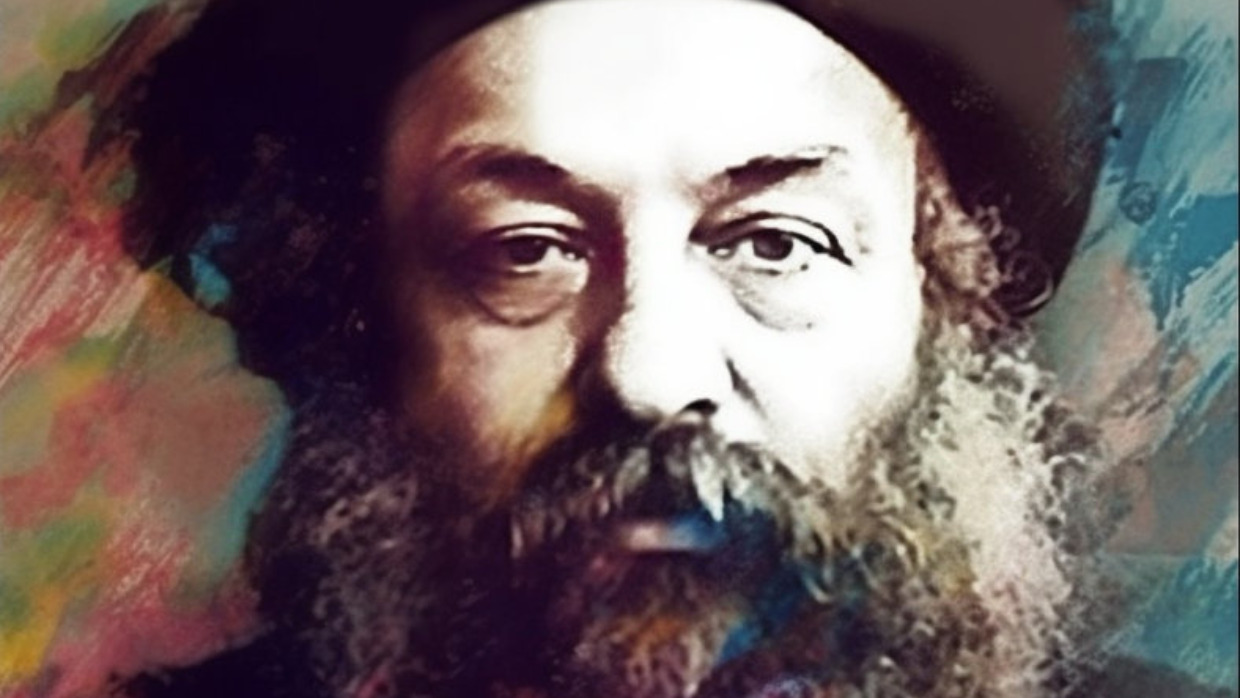 Vampire Weekend's Surprising Jewish Stories
Vampire Weekend's Surprising Jewish Stories


5 min read
The Kotzker Rebbe was fiercely committed to truth and authenticity.
Menachem Mendel Morgenstern, the Kotzker Rebbe, was a 19th-century Hasidic Rabbi known for his sharp wit, radical teachings, and uncompromising approach to Judaism.
Despite his influence on Jewish thought, the Kotzker Rebbe was a reclusive figure who spent the last 25 years of his life living alone in the forest, scaling the heights of spirituality.
Born into a distinctly non-Hasidic family in 1787, the young Menachem Mendel became attracted to the central tenets of Hasidic thought, namely that of emotional cleaving to God, serious spiritual introspection, and truth. As he evolved into a spiritual figure in his own right, the Kotzker was expelled from the town of Tomaszów, as his congregants were simply too uncomfortable with his rigorous expectations of the self. Finding solace in the nearby town of Kotzk, the Rebbe would live there for the remainder of his life, never leaving the area again.
Indeed, although his sons tried to carry the mantle of leadership after his death, the movement was strictly limited to the Rebbe’s lifetime, as his demands for spiritual purity were too much for later generations to adhere to. For example, the Rebbe held that prayer done simply to fulfill one’s religious obligation is nothing short of idolatry. Prayer can only be performed when the individual subjects himself to total submission to the Divine will, something human beings typically fall short of. His expectations exceeded the religious sphere and permeated daily routines. He criticized man’s constant desire to accommodate the judgments of others, famously explaining: “If I am I because I am I, and you are you because you are you, then I am I and you are you. But if I am I because you are you and you are you because I am I, then I am not I and you are not you!"
Tellingly, the world of Kotzk is seldom studied or understood, owing somewhat to its limited acceptance in the broader Jewish community and its scrupulous standards.
The Kotzker Rebbe was known for his radical teachings which challenged conventional wisdom. He believed that the pursuit of truth was the highest goal of Judaism, which required a willingness to question and challenge established norms and beliefs. At a time when charismatic Rabbinic leaders competed for spiritual followers, it was his disdain for such a practice that ultimately led to his isolation. Ironically, the more he rejected his growing influence, the larger his following became.
He emphasized the importance of individual responsibility, believing each person had a unique role in the world and that it was up to the individual to fulfill his or her own potential and purpose. The Kotzker would routinely chastise individuals for making the trek to Kotzk to seek a blessing from him, which was customary for a Hasidic Rebbe to give to his adherents. He viewed a personal blessing as too often being used as a quick spiritual fix to their woes. Instead of praying for his practitioners, he would encourage them to seek their own salvation through personal reflection and repentance and take ownership of one's own spiritual journey.
The Kotzker Rebbe had no tolerance for faux pas religious piety. He believed that true religious devotion could not be measured by outward displays of religious observance, but rather by a person's inner commitment to living a life of integrity and righteousness.
He also had a deep concern for social equity and believed that Jews were responsible for actively working towards creating a more just society built on the precepts of truth. He believed that the wealthy and powerful had a responsibility to use their resources to help those in need. Famously, he would often cite the ideal practice of a leader: when faced with a cold snap, many opt to warm themselves in a fur coat. The true mark of the righteous is when they instead build a fire, thereby ensuring those who gather around will also be consoled.
Similarly, when his wife Glike Nay noticed their silverware had been stolen, the Kotzker was completely unperturbed. “Impossible,” he exclaimed. “The Torah explicitly teaches us not to steal. It simply cannot be, therefore, that a Jew would.” His genuine desire to live in a world strictly adhering to God’s will often made him unwilling, and perhaps unable, to consider that others wouldn’t.
The holiest time is today. The holiest person is you, and the holiest place is right here.
After someone mentioned that the holiest time of the year is the last moment on Yom Kippur, the Day of Atonement before the Gates of Heaven close, the Kotzker banged his fist on the table: “No, no, and no!” he yelled. “The holiest time,” he continued, “is today. The holiest person is you, and the holiest place is right here.” Such teachings represent the essence of the Kotzker: unabashedly confident as to the spiritual heights any individual is capable of reaching.
The Kotzker Rebbe was deeply respected by his followers and has continued to influence Jewish thought to this day, albeit in more subliminal ways. He deliberately burnt all of his Torah novellas and writings in a fire, horrified that people in later generations would rely on his approach to Judaism rather than devise their own.
Undoubtedly, the Kotzker would probably be furious to learn that 164 years after his death, this article was being written. Nevertheless, his authentic and unique approach to man’s relationship with the world at large and with the Creator of the world, as well as his immovable quest for authenticity makes him a surely needed figure today.
To learn more on the Kotzker Rebbe, visit:
